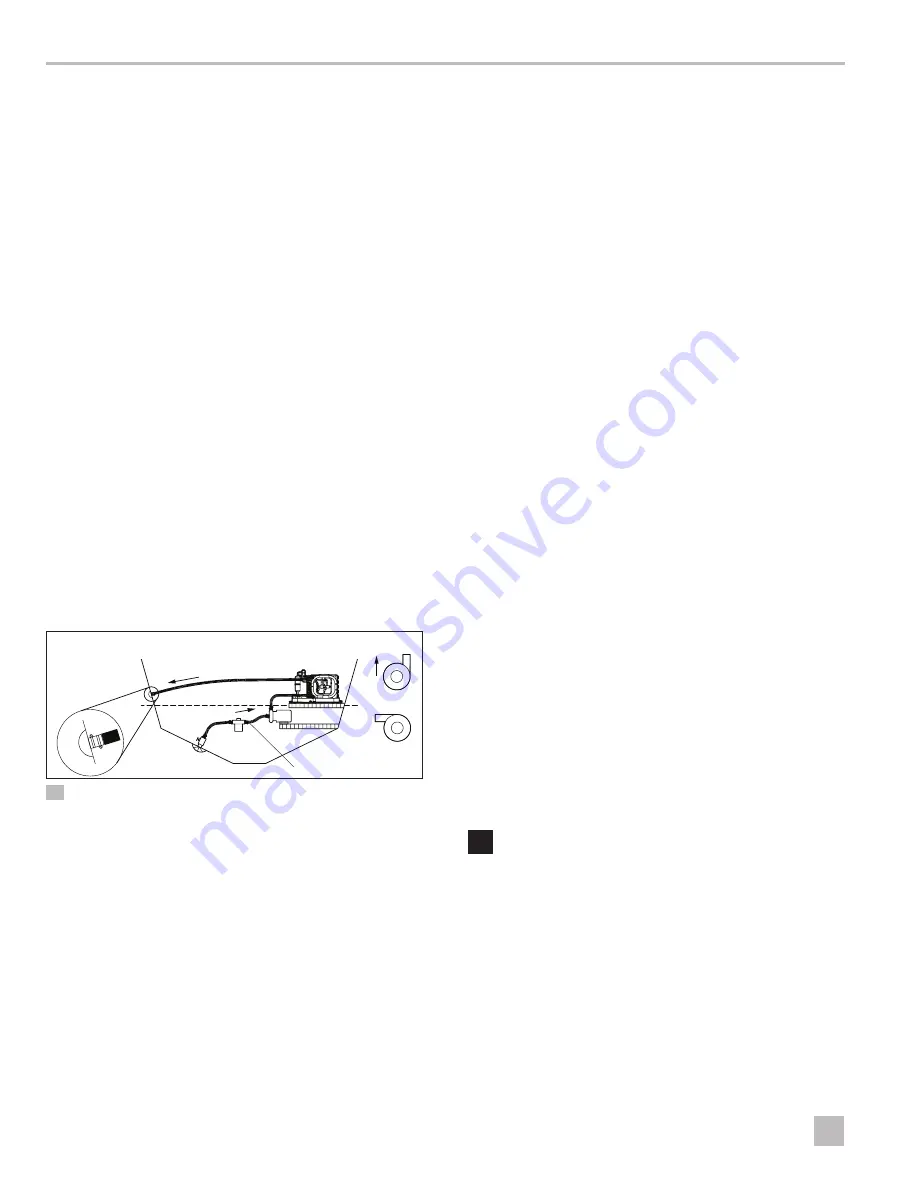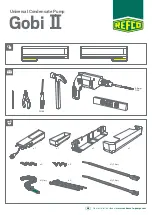
10
EN
Installation
Self-Contained Air Conditioning System
6 .7 Installing the Seawater System
I
Failure to follow this procedure will void the
warranty.
Observe the following considerations when setting up
the seawater system:
• The strainer must be below the pump.
• Hoses must be double clamped.
• Hoses must not have kinks, loops, or high spots
where air can become trapped.
• The pump and strainer must be below the water line.
• The thru-hull inlet, ball valve, hose, and strainer
should be no smaller than the pump inlet.
• Install the thru-hull fitting as far below the water line as
possible.
• The pump must have a dedicated thru-hull.
• Avoid 90° elbow fittings as much as possible.
• Ensure that the pump head is rotated toward the
direction of water flow.
• Use threaded seal tape on all threaded connections.
a
o
i
u
y
t
r
e
w
q
12
Seawater System
q
Seawater Outlet
u
Uphill Inlet Flow
w
Outlet Flow
i
Ball Valve
e
Air Conditioning Unit
o
Scoop Thru-Hull Inlet
r
Seawater Pump
a
Water Line
t
Hose Clamps
s
Correct Pump Head
Orientations
y
Strainer
1. Install a seawater scoop thru-hull inlet as close to
the keel and as far below the water line as possible.
Secure the scoop thru-hull inlet using a marine sealant
designed for underwater use.
2. Install a bronze, full-flow seacock on the seawater
scoop thru-hull inlet.
3. Install a seawater strainer below the level of the pump
with access to the filter.
4. Mount the pump above the strainer and at least one
foot below the waterline.
5. Connect the seacock and strainer with an uphill run of
reinforced marine-grade hose.
6. Connect the discharge from the pump uphill
to the bottom inlet of the air conditioning unit’s
condenser coil with a 5/8 in. (15.9 mm) reinforced,
marine-grade hose.
7. Connect the discharge from the condenser coil to
the overboard discharge thru-hull fitting with a 5/8
in. (15.9 mm) reinforced marine-grade hose.
8. Avoid loops, high spots, or the use of 90° elbows
with the seawater hose. Each 90° elbow is equivalent
to 2.5 in. (0.762 m) of hose and a 90° elbow on the
pump outlet is equivalent to 20.0 in. (61 m) of hose.
9. Double-clamp all hose connections using two
stainless steel clamps, reversing the clamps where
necessary.
10. Connect all metallic parts in contact with seawater to
the vessel’s bonding system.
Refer to “Operating Water Temperature and Pressure”
on page 5 for maximum and minimum water
temperature and pressure values.
6 .8 Making the Electrical
Connections
WARNING: ELECTRICAL SHOCK HAZARD .
Always turn off the air conditioning power supply
breaker before opening the electrical box. Failure
to obey this warning could result in death or serious
injury.
I
Failure to properly ground and bond the system will
void the warranty.
s






























